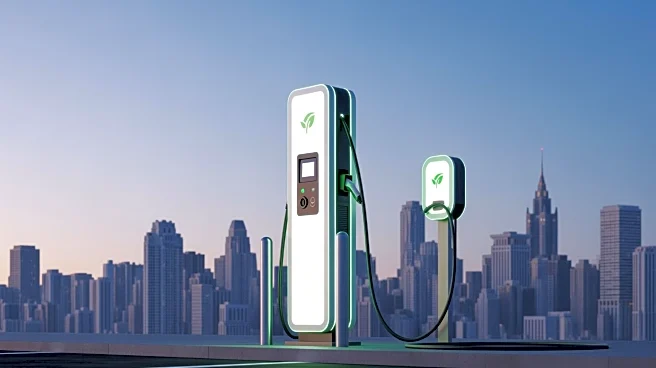What's Happening?
The UK government is set to extend its Electric Car Grant scheme through 2030, with an additional £1.3bn ($1.7bn) in funding announced by Chancellor Rachel Reeves. The scheme aims to reduce upfront vehicle costs and accelerate the deployment of charging
points across the UK. Since its launch, the grant has supported 35,000 drivers in purchasing electric vehicles, contributing to a significant increase in EV market share. The government is also considering a pay-per-mile tax on EV usage to address declining fuel duty revenues as the country transitions away from petrol and diesel vehicles.
Why It's Important?
The extension of the Electric Car Grant scheme is a crucial step in the UK's efforts to promote sustainable transportation and reduce carbon emissions. By incentivizing the purchase of electric vehicles, the government is supporting the transition to cleaner energy sources and contributing to environmental goals. The proposed pay-per-mile tax reflects the need to adapt fiscal policies to changing transportation trends, ensuring continued revenue generation as traditional fuel usage declines. This initiative also supports the UK's automotive industry by encouraging domestic production and innovation in EV technology.
What's Next?
The government's focus on expanding EV infrastructure and implementing new taxation policies will likely influence consumer behavior and industry practices. The consultation on the pay-per-mile tax may lead to adjustments in how EV usage is taxed, impacting both consumers and manufacturers. As the 2030 ban on new internal combustion engine car sales approaches, the government will continue to refine its policies to support the transition to electric vehicles. The review of on-street charging costs will address concerns about equitable access to charging infrastructure.















